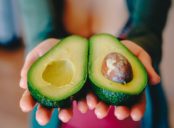Vegan Diet: A Comprehensive Guide to Plant-Based Eating

Introduction
A vegan diet, also known as a plant-based diet, is rapidly gaining popularity worldwide. As more individuals embrace a compassionate and sustainable lifestyle, the demand for information and understanding about veganism has increased. In this article, we will provide a thorough overview of the vegan diet, exploring its various types, popularity, quantitative measurements, differences between them, and a historical review of their advantages and disadvantages.
I. Overview of Vegan Diet

A. Definition and Principles
The vegan diet involves abstaining from consuming any animal-derived products, such as meat, poultry, fish, dairy, eggs, honey, and even certain additives and ingredients derived from animals. It is rooted in ethical, environmental, and health considerations.
B. Animal Welfare and Environmental Sustainability
Veganism advocates for the ethical treatment of animals, highlighting the cruelty involved in factory farming and animal exploitation industries. Additionally, the vegan diet addresses environmental concerns, recognizing the significant impact of animal agriculture on deforestation, greenhouse gas emissions, and water pollution.
C. Health Benefits
Numerous studies have shown that adopting a well-balanced vegan diet can offer various health benefits. These include lower risks of heart disease, type 2 diabetes, obesity, and certain types of cancer. Moreover, a plant-based diet tends to be higher in fiber, vitamins, and antioxidants, contributing to overall well-being.
II. Comprehensive Presentation of Vegan Diet
A. Types of Vegan Diets
1. Whole Food Plant-Based Diet
This diet emphasizes whole, minimally processed foods, including fruits, vegetables, whole grains, legumes, nuts, and seeds. It excludes refined products and encourages cooking meals from scratch.
2. Raw Vegan Diet
Raw vegans consume uncooked and unprocessed plant-based foods, such as fruits, vegetables, nuts, seeds, and sprouted grains. The rationale is that cooking can diminish nutrient levels and enzymes present in food.
3. Junk Food Vegan Diet
While not the healthiest option, this diet allows for indulgence in vegan alternatives to traditionally non-vegan products, such as vegan burgers, pizzas, and desserts. It focuses less on whole foods and more on convenience and imitation.
B. Popular Vegan Diets
1. The Mediterranean Vegan Diet
Often considered the gold standard of vegan diets due to its focus on whole plant-based foods, this diet incorporates elements of the traditional Mediterranean diet, such as olive oil, whole grains, legumes, fruits, and vegetables.
2. The High-Protein Vegan Diet
Addressing concerns about protein intake, this diet emphasizes plant-based protein sources like tofu, tempeh, seitan, and legumes to meet the body’s requirements.
3. The Gluten-Free Vegan Diet
Suitable for individuals with gluten sensitivities or celiac disease, this diet excludes gluten-containing grains and focuses on naturally gluten-free alternatives, such as quinoa, rice, millet, and buckwheat.
III. Quantitative Measurements of Vegan Diet
A. Nutrient Considerations
1. Protein Intake
Contrary to common misconceptions, plant-based diets can provide adequate protein. Foods like legumes, tofu, tempeh, seitan, and quinoa are excellent protein sources for vegans.
2. Vitamin B12
Vegans are at a higher risk of vitamin B12 deficiency since this essential nutrient is mainly found in animal products. Supplementation or fortified foods are necessary to meet B12 requirements.
3. Omega-3 Fatty Acids
While fish is a common source of omega-3 fatty acids, vegans can obtain them from plant sources like flaxseeds, chia seeds, hemp seeds, and walnuts.
B. Environmental Impact
Research shows that adopting a vegan diet can significantly reduce an individual’s carbon footprint, water usage, and land consumption compared to a standard omnivorous diet.
IV. Differences Between Vegan Diets
Though all vegan diets share a common foundation of abstaining from animal products, differences arise in terms of food choices, nutrient composition, and overall approach. These variations cater to individual preferences, health concerns, and ethical considerations.
V. Historical Review of Advantages and Disadvantages
A. Advantages
1. Ethical Considerations: Veganism aligns with compassion for animals and promotes a humane approach towards their treatment.
2. Environmental Sustainability: Avoiding animal agriculture helps reduce deforestation, water pollution, and greenhouse gas emissions.
3. Health Benefits: A well-planned vegan diet can contribute to lower risks of chronic diseases and overall well-being.
B. Disadvantages
1. Nutritional Deficiencies: Vegans may face challenges meeting specific nutrient requirements, such as vitamin B12, omega-3 fatty acids, iron, and calcium.
2. Social Challenges: Adhering to a vegan diet in certain social situations or finding suitable options while dining out can be challenging.
Conclusion
In conclusion, the vegan diet offers a compassionate, sustainable, and health-conscious approach to food choices. With various types and adaptations available, individuals can tailor their plant-based eating to suit their own preferences and needs. Despite some challenges, the benefits of a vegan diet in terms of ethics, the environment, and personal well-being are increasingly recognized. By embracing a vegan lifestyle, we contribute to a more compassionate and sustainable world for all living beings.





















